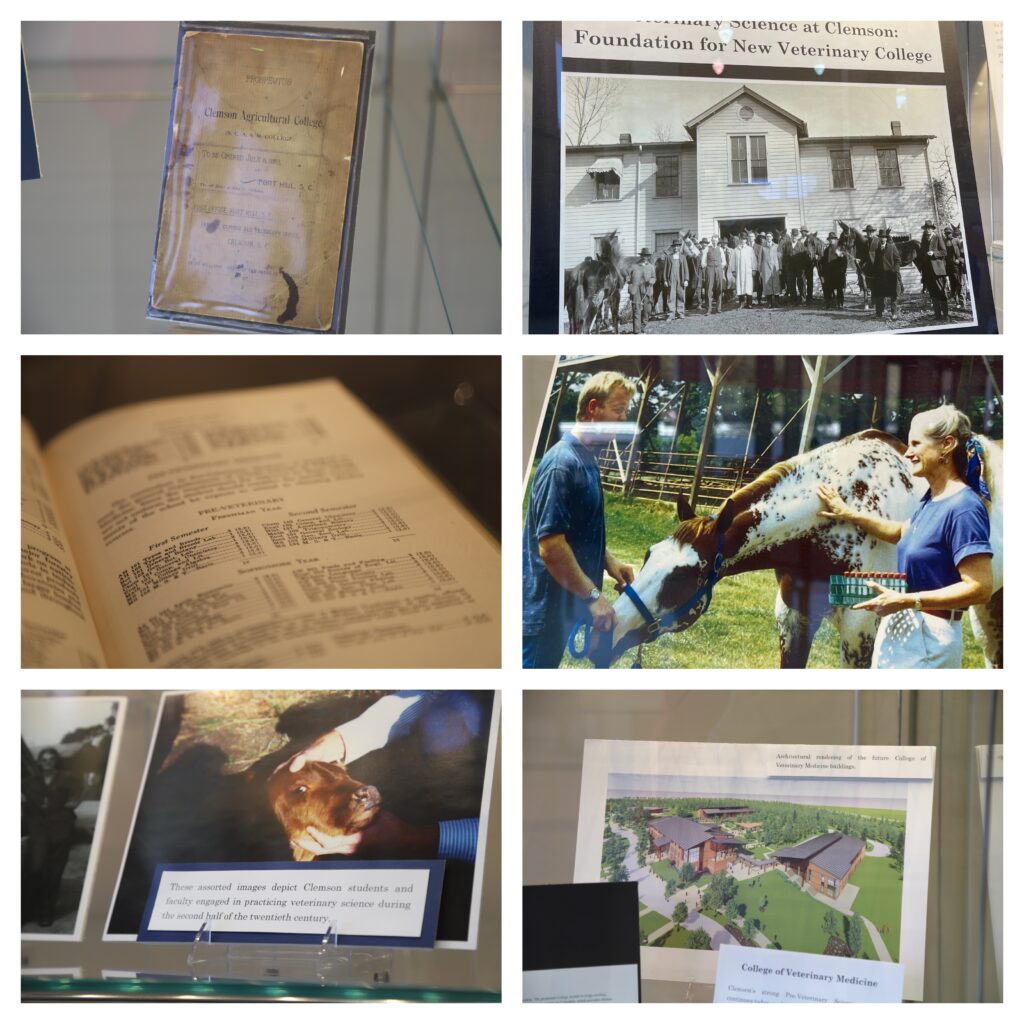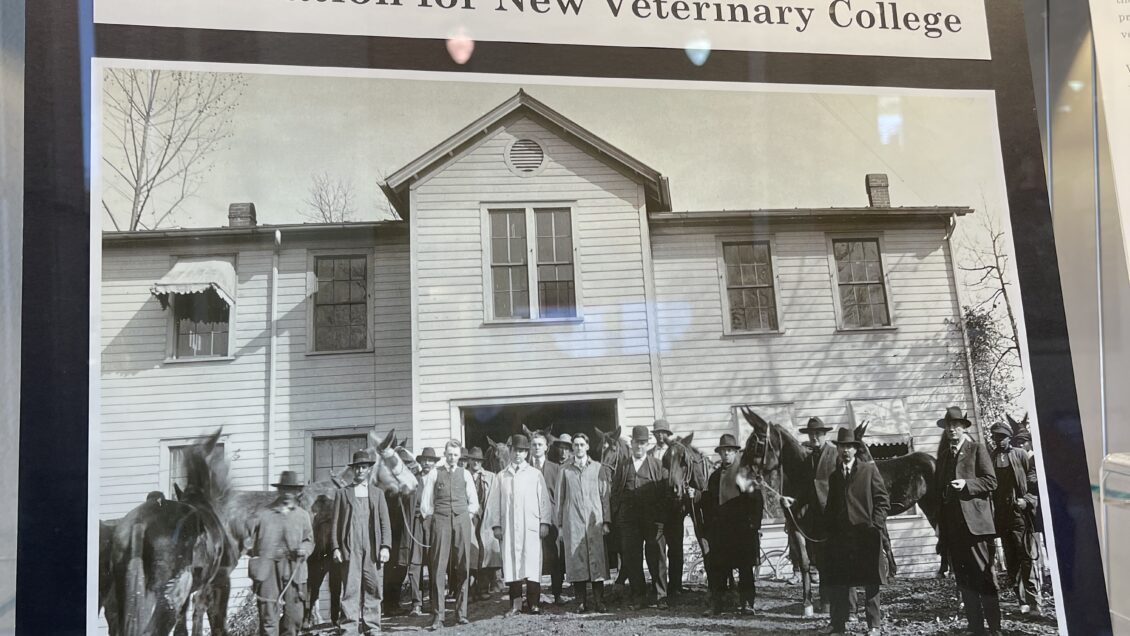We can see where we came from and where we are heading in the world of veterinary science as Cooper Library displays dozens of unique pieces that show the history of veterinary medicine at Clemson University.
“The proud history of veterinary and animal science at Clemson University has helped pave the way for the College of Veterinary Medicine (CVM) at Clemson,” said founding CVM Dean, Dr. Steven Marks. “We look forward to working together to produce the next generation of veterinary clinicians and scientists.”
Sean Baker, Exhibits and Artifacts Curator, was inspired by the new College of Veterinary Medicine announcement to reflect on how Clemson reached this new milestone. He says he wasn’t sure what his research would yield, but it quickly became apparent that the University always had an interest in veterinary science.
“So that became the central theme that manifests itself over time in things like having a veterinary hospital on campus [in the early 1900s], employing state veterinarians who work on disease eradication throughout the state, entering a regional compact with other universities so that Clemson graduates can attend veterinary colleges, and having a robust pre-veterinary curriculum,” said Baker.
Baker used photos and documents to show the evolution of veterinary medicine at Clemson. This dedication to the practice has endured and made Clemson the perfect fit for the first College of Veterinary Medicine in South Carolina.
“My experience developing this exhibit has been eye-opening in terms of seeing how much Clemson has helped in advancing the industry of vet med,” said Baker. “The early veterinary science curriculum was very strong and involved clinical instruction, and Clemson-employed state veterinarians were critical in eradicating and treating various livestock diseases throughout the state and this work continues today. Clemson has remained committed to having veterinary science in its curriculum and we no doubt have helped produce countless veterinarians. They just had to go elsewhere to receive their graduate education. Clemson is better suited now to support a veterinary college, and it addresses a critical need in South Carolina.”
It’s a look back at history as Clemson makes history. This Special Collections and Archives display will be available in the main lobby at Cooper Library through the summer.

Get in touch and we will connect you with the author or another expert.
Or email us at news@clemson.edu

